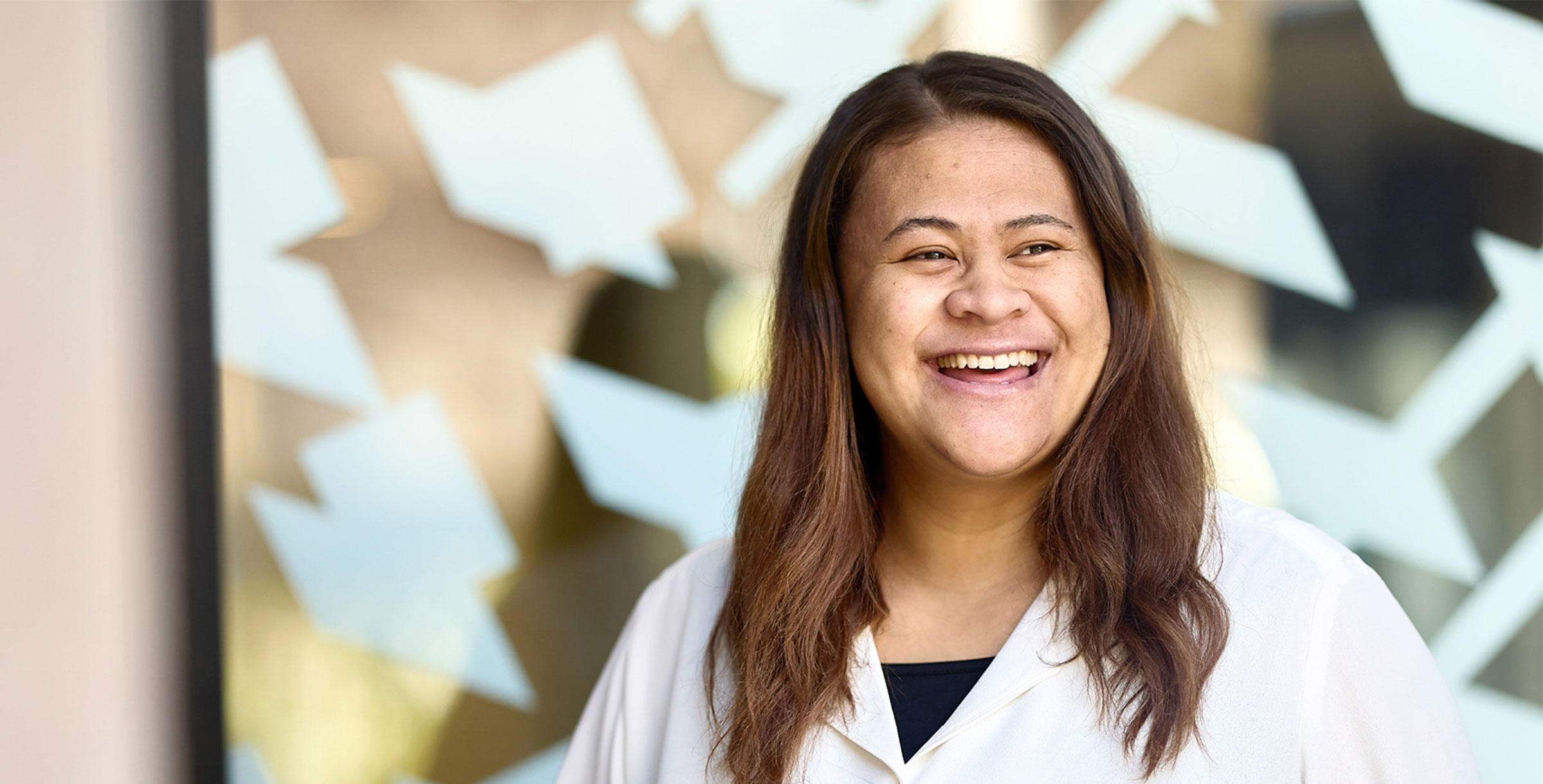Fonofale

“Identity is a massive thing. Embracing your identity is very individual to each person – it can come from who you are, what you believe in, your cultural background and your family upbringing.”
Ezra
Bachelor of Nursing
You can read this page in Tongan and Samoan
Fonofale is a Pasifika model of health and wellbeing that can help you to find balance and wellness by exploring all the things that affect how you feel and make you who you are.
Created by Fuimaono Karl Pulotu-Endemann in 1984, Fonofale is a Samoan model that also embraces and interweaves values and beliefs from the Cook Islands, Tonga, Fiji, Niue and Tokelau.
Fonofale is designed to look like a fale (house). When you’re thinking about your wellbeing through this model or having a talanoa with others about it, you can picture a fale standing tall and strong – but it needs looking after and it needs maintenance, just like our wellbeing.

“Fonofale is where leaders go.”
Pacific learner at Te Pūkenga
Have a look at the model and think about how each part relates to you, your life, your family and your loved ones. Which parts of your fale are strong? What changes would you like to make? Where might you need some support? All of us have some areas that are stronger than others – finding small, meaningful ways to strengthen your fale can have a real impact on how you learn and feel in your everyday life.
- Fa’avae | Foundation
- Falealuga | Roof
- Pou | Posts
- Cocoon
Fa’avae – Foundation
The foundation of the fale is family.
For some people, this is simply their immediate and extended family. But for many, the foundation of their wellbeing relies on more than just their relatives, and goes to other connections – friends, neighbours, members of church communities, loved ones overseas, colleagues and other learners. It’s whoever you feel connected to, whoever you care about. Your foundation can also be about your history, language, ancestry and home country.
What does ‘family’ mean to you? How do your relationships impact your wellbeing and your ability to study and learn? Growing strong relationships is a great way to boost your wellbeing and helps give you a solid foundation to develop as a learner and as a person.

“My journey to dig into my culture has helped me to connect to traditional values around family, togetherness and community. It helps me feel I belong to something. It’s so deep and so rich.”
Matt
Bachelor of Landscape Architecture
Falealuga – Roof
The roof of the fale shelters your wellbeing and represents your culture, values and beliefs for your whole life.
What does this look like for you? Do you incorporate traditional beliefs and values into your everyday life, values from other cultures, or a combination of both? How do you bring your culture, values and beliefs into your life as a learner? Strengthening and exploring your connection to your culture, values and beliefs helps you understand who you are, giving you a stronger sense of belonging, which is important for your mental health and wellbeing. Who could you connect with to talanoa about this?

“Spirituality for me is how I see the bigger picture, it’s what wakes me up in the morning, what makes me grateful, it’s what makes me happy. It’s how I can give happiness to other people.”
Joe
Bachelor of Performing and Screen Arts
Pou – Posts
The pou connect with each other as well as the roof and foundations of the fale.
- Fa’aleagaga (spiritual): how is your wellbeing supported by your belief system? This could be through organised religion, a traditional religion or a sense of being connected to the world around you, to nature, to your language, history and culture. Does your belief system influence how you learn or how you study?
- Fa’aletino (physical): how your body feels impacts how your whole wellbeing. Have you noticed a connection between how you feel physically and how well you are able to keep up with your coursework?
- Mafaufau (mental): your mental health impacts your whole wellbeing. How are you feeling in your mind? How does your mood or mental health impact your ability to learn and study?
- Isimea (other): this can be anything else that directly or indirectly affects how you feel and how you live in the world. It might include your age, gender, sexuality, financial status – anything that is a part of you. What would you put in this pou? How do these things influence you as a learner?

“Connecting with nature is waking up in the morning, opening my windows and letting that fresh air come in. It’s a reminder that it’s a new day where I can just be myself or even try to help someone and make a difference.”
Ezra
Bachelor of Nursing
Cocoon
The fale is surrounded by a cocoon made up of your environment, time and context. These all shape and influence who you are and how you feel, and they all influence each other.
- Environment: this is about your connection to your physical environment, where you live, where you work, where you study. Where do you feel most connected? What helps you feel more connected and present in your environment? How could changing or strengthening your connection with the environment grow your wellbeing and support you to overcome challenging times?
- Time: this is about the time we are in right now, in history. What’s happening for you at the moment, what is going on in the world, and how is it affecting your wellbeing?
- Context: this is about the unique context you are living in. It might sound complicated, but it doesn’t have to be. What country do you live in? Is that a different place to where you were born or raised? How do the current political, cultural and social norms influence and shape you?





